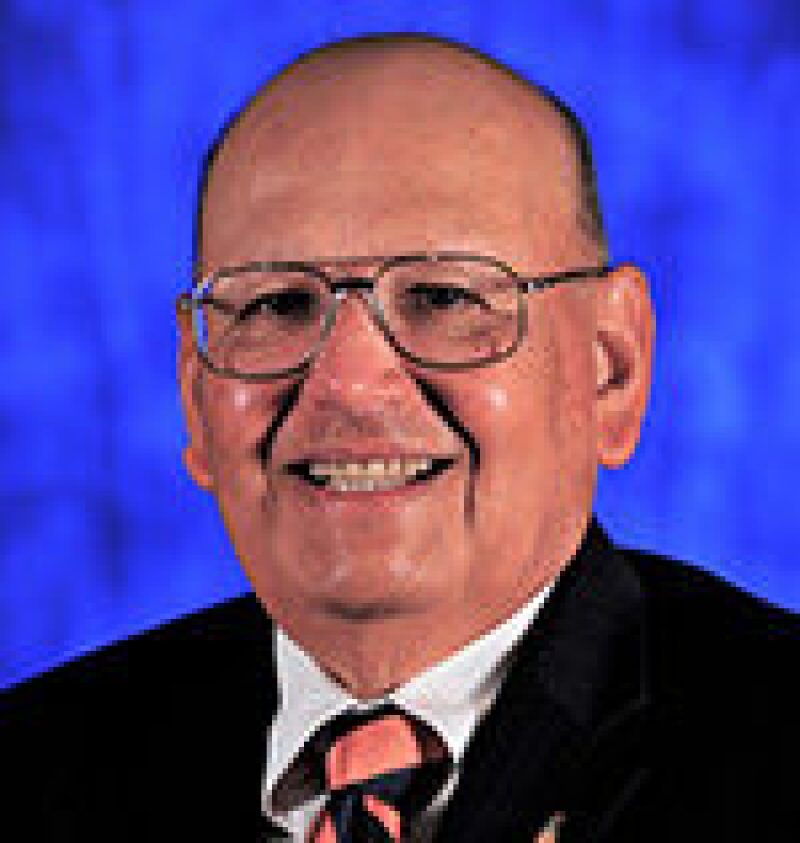I am honored to share my oilfield career experiences and learnings with the SPE young professionals’ community. My story is unique and personal, molded by working for a long time in the drilling segment of the industry. However, the career advice and insights that I share, or infer by example, are mostly universal and directed toward those looking for or starting their first oilfield job, working for a few years, or transitioning.
I am grateful for the major dose of serendipity that first led me to the oil field and then stayed by my side throughout a rewarding 48-year-long career. It was by sheer luck that Shell hired me as a summer intern to write a computer program on casing failures for the drilling department. I was so impressed by the company and my coworkers that I subsequently accepted a permanent position as a drilling engineer in Houston. I was intrigued by my intern project and recall being highly motivated at that time with what I now call practical engineering research. However, I worked in operations and was among the many left behind when the division office closed and moved to New Orleans.
IMC Drilling Fluids (later M-I SWACO) fortuitously hired me to start a new staff engineering group, a job where my interests, innovator traits, and technical background proved to be well-aligned with the company’s needs. The restart of my career in the beginning was a bit uneasy. While I knew the company well and was familiar with the technology, I was going to work for and with people who previously had called me their client. Nevertheless, everything went well and I held that same rewarding job for the final 44 years of my career with absolutely no regrets. During this period, I survived multiple industry downturns, changes in the company name and ownership, responsibility tweaks, and trips around the world without ever moving out of Houston.
Solving Drilling Engineering Problems
When the IMC staff engineering group was established 18 months after I joined the company, we were given a prime directive “to help secure and retain major and critical jobs by helping clients solve their drilling engineering problems.” (In some cases, we assisted other groups with specific mud-system and product issues, but these were not our main focus.) This powerful concept proved highly successful and subsisted throughout my career.
For the most part, we followed four concurrent tracks to satisfy this directive:
Track 1 identifies the changing critical-well trends vs. time, such as ultradeep land to ultradeepwater to horizontal to ultra-extended reach.
Track 2 matches the mud and drilling systems used or developed specifically for these wells, including synthetic-based and rheologically engineered fluids, rotary steerables, and polycrystalline-diamond-compact bits.
Track 3 is for drilling problems attributed or related to the first two tracks, including hydraulics, hole cleaning, sag, stuck pipe, well control, wellbore stability, and extreme environments.
Track 4 includes the latest calculating tools, technologies, and methods useful for solving or diminishing the problems.
The main products of our efforts included mathematical models, theories, software, physical laboratory measurements, specialized testing equipment, videos, technical papers, and client seminars.
A high number of projects satisfied our “First and Foremost” slogan, meaning our contribution/solution was first in the industry and remained at or near the top for an extended period. We were especially proud of our hydraulics software (including real-time), 3D visualization of the downhole drilling environment, data management software, rheology and hydraulics modeling, hole-cleaning videos, temperature/pressure effects on density, barite sag studies, drilling automation concepts, d-exponent slide rule, and digital well-control simulators, among others.
My management style matured over time from doing the work, to helping get the work done, to making sure the work got done. An increase in managerial responsibilities no doubt played an important role in my career, but I must admit that the talented individuals in the group simply became so much better than I at applying evolving technology. The group was loosely subdivided into engineers working on modeling and software development, and mechanical and electrical engineers working in a unique experimental lab and machine shop. I am confident that most had successful careers, with dozens moving into upper management positions in this and other oilfield companies, a legacy for which I am particularly proud.
If I Have to Start Over Now…
I probably would change very little if given a magical opportunity to start over and redo my oilfield career. I would again choose drilling, starting with a major oil company or international services company and then switching to drilling engineering research after a short time.
If the restart were to go back 50 years, I would again piggyback on the exponential growth of the digital revolution to solve drilling issues of those times. If now, I would simply refocus on today’s drilling opportunities, including automation, artificial intelligence, robotics, predictive analytics, big-data analyses, virtual reality, microfluidics, smart iron [connecting heavy machines and data], etc.
I would like to close by admitting that throughout my career I have been continually amazed and sometimes intimidated by the true legends in drilling. I had the distinct privilege of interviewing more than three dozen of these industry giants on their induction into the American Association of Drilling Engineers Fluids Hall of Fame. Moreover, I reviewed their videos over and over to edit and produce DVDs for each biennial class from 2006 to 2016. The purpose of the interviews was to capture their life story rather than the technical accomplishments available in their publications. Not surprisingly, they all proved to be wonderful and personable individuals, mostly from humble beginnings, who all started at the bottom just like us. They had mentors and memories of individuals that they admired and tried to emulate. They worked hard, struggled, made mistakes, took chances, and succeeded. Some even promised to eventually leave and let you replace them—don’t disappoint them.
Advice for Young Professionals
The immediate value and impact of the early years on your full career are self-evident. Start with developing short- and long-term career goals with guidance from colleagues, mentors, and human resources. Make the best use of this time to learn, experience, challenge, network, and even move on if things do not work out.
Networking is important for your current job and even more so if you decide to change jobs. Focus on adapting to your company’s culture, and learn to work with, around, and for oilfield people, as they are a special bunch with a unique heritage. It helps to manage and cultivate your “sphere of influence,” finding creative ways to actively assist those important to you (colleagues, superiors, subordinates) and look good in the eyes of those important to them.
Fully embrace available internal and external training programs, and especially maximize time worked in the field if appropriate for your discipline. Diligently keep up with changing technologies and trends important to your job. Practice and continually refine your communication, presentation, and writing skills.
Last but not the least, join SPE and at least one other industry society that represents your technical specialty on your first day and actively participate throughout your career—you will thank yourself later. Volunteer for committees and SPE technical sections, and try to attend at least one or two technical conferences and/or exhibitions per year.


